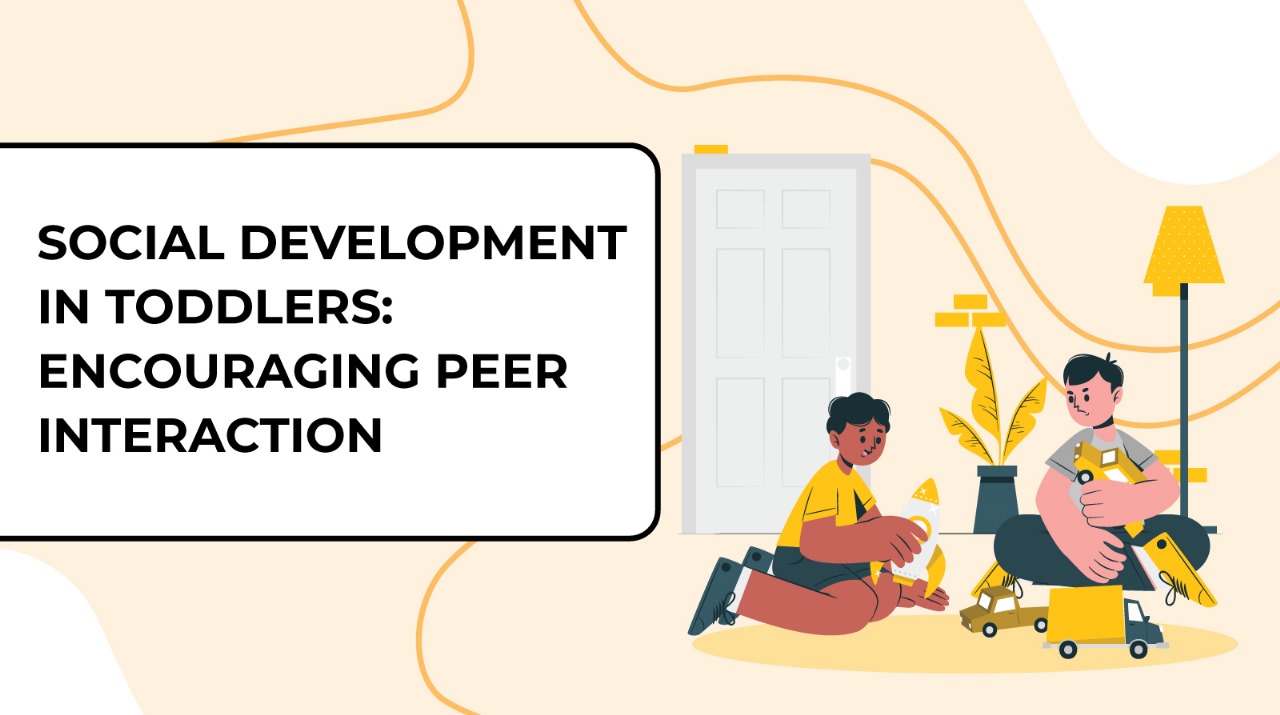The toddler years mark a significant period in a child's development, characterized by rapid cognitive, emotional, and social growth. Social development, in particular, plays a pivotal role in shaping a toddler's future relationships and overall well-being. Encouraging peer interaction during this stage is essential as it provides a unique set of experiences that contribute to a child's social competence and emotional intelligence.

Social development in toddlers involves learning how to navigate relationships, manage emotions, and communicate effectively with others. It lays the foundation for forming healthy connections, which are integral for success in various aspects of life. Peer interaction, in particular, offers toddlers the opportunity to explore social dynamics, practice cooperation, and develop empathy.
Toddlers often express themselves through gestures and simple words. Engaging with peers helps enhance their communication skills by providing a platform for them to practice and refine their language abilities. Through interactions with others, toddlers learn the art of conversation, turn-taking, and expressing their needs, fostering effective communication skills that will serve them well in later stages of life.
Peer interaction is a playground for emotions, where toddlers experience joy, frustration, and empathy. Through these encounters, they learn to recognize and understand their own emotions as well as the feelings of others. This process contributes to the development of emotional intelligence, enabling toddlers to navigate social situations with greater self-awareness and empathy.
Toddlers are naturally egocentric, often exhibiting possessiveness and resistance to sharing. Engaging in peer interactions introduces them to the concept of cooperation and sharing. Through shared play, toddlers learn the value of taking turns, compromise, and collaboration, essential skills that form the basis of healthy relationships in the future.
Interacting with peers allows toddlers to develop a sense of social confidence. It provides them with opportunities to initiate interactions, make friends, and navigate group dynamics. This newfound confidence is crucial for their overall social development in toddlers and serves as a solid foundation for future social interactions in school and other settings.
Parents and caregivers play a vital role in fostering peer interaction for toddlers. Creating opportunities for socialization is key to supporting social development for toddlers. Organizing playdates, enrolling in toddler classes or groups, and participating in community events are effective ways to expose toddlers to peer interactions in a controlled and supportive environment.
It's essential for adults to model positive social behavior, emphasizing kindness, sharing, and cooperation. Supervising playdates and intervening when necessary can help toddlers navigate conflicts and learn appropriate social behaviors.
